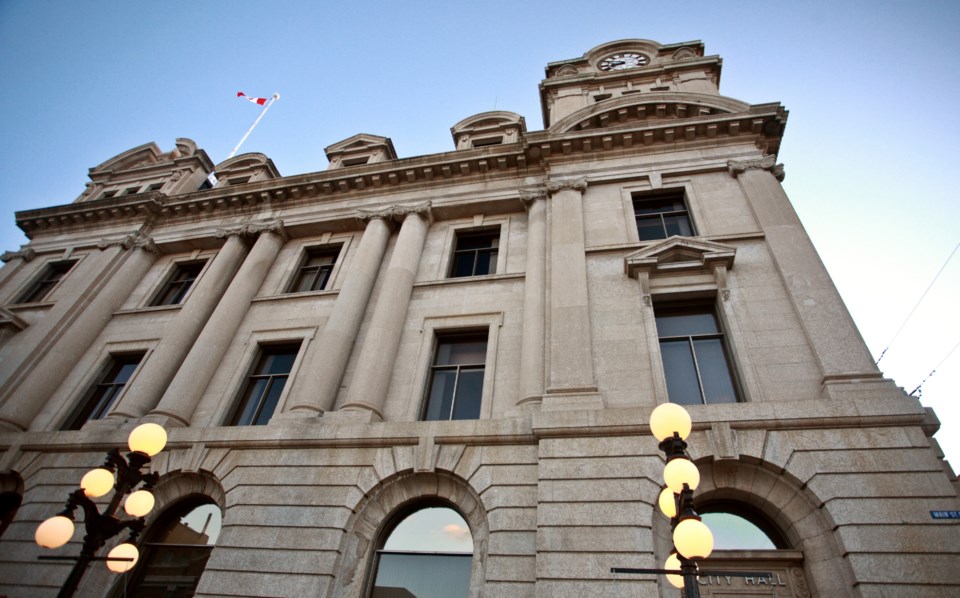The Phyllis Dewar Outdoor Pool will remain closed this year as part of city council’s cost-saving measures to reduce property taxes to help anyone whom the pandemic has affected.
Shutting the outdoor pool was just one action city council took during its May 11 regular meeting to reduce this year’s tax increase to zero per cent from its original 2.3 per cent. After 90 minutes of discussion, council wiped out the original tax increase by eliminating or deferring $703,636.
Highlights include:
- Postponement of $295,426 to fund projects in the parks and recreation department until the 2021 budget. Council unanimously approved this motion
- Funding to third parties is reduced by $159,100 for the remainder of this fiscal year. Council unanimously approved this motion
- Budgets in the financial services and human resource services departments are reduced by $51,060. Council unanimously approved this motion
- Closure of the outdoor pool for $166,176. Council unanimously approved this motion
Council also voted 6-1 to approve the 2020 operating budget as amended — Coun. Brian Swanson was opposed — while council unanimously approved the property tax increase of zero per cent for the remainder of this year.
By the numbers
The pandemic will negatively affect the City of Moose Jaw’s revenues and expenses depending upon how long the pandemic continues, city manager Jim Puffalt explained. The finance department prepared two sets of numbers based on whether the pandemic lasts until Aug. 31 or until Dec. 31. Those numbers, respectively, show:
- reduction in revenues: $1.6 million / $3.04 million;
- reduction in expenses: $1.8 million / $3.04 million.
The pandemic will also affect revenues and expenses in the utility department based on whether the pandemic lasts until Aug. 31 or until Dec. 31. Those numbers, respectively, show:
- reduction in revenues: $569,436 / $1.1 million;
- reduction in expenses: $462,706 / $861,156.
The volume of water and sewer usage is expected to decrease by 10 per cent each month as long as the pandemic measures continue. The deferral of utility capital programs would partially mitigate the lost revenues.
One project that city administration recommends continue in full is the cast iron water main replacement program, Puffalt continued. Administration also recommends that the $30 infrastructure levy that council approved during the 2020 budget deliberations remain, as the funds collected would be directed to the cast iron program.
In approving the zero-per-cent tax increase, council should understand that the 2021 budget will be more challenging to create since expectations are that this is a one-time budget to combat the coronavirus and that services would be re-instated in 2021, said Puffalt. Moreover, 2021 will see cost of living increases for wages and increased costs for goods and services.
Council discussion
Coun. Crystal Froese was concerned with the changes made to funding third-party groups, especially since retail stores could open in phase 2 or 3 of the province’s reopen strategy. Instead of reducing third-party funding until the end of the year, she wanted to see a monthly adjustment to keep up with changes in the province.
“If everything keeps going as it seems to be in our city and the southern part of the province, the phasing might be ramped up quicker here than in other areas with challenges,” she added.
The province plans to move slowly and says it will allow more people to gather in phases 3 and 4, which is in August, Puffalt said. If the situation changes sooner, then municipal revenues would start to come back — since recreational buildings would reopen — and that would provide flexibility to adjust funding to those groups.
Changes to expenses
The list of proposed expense reductions presented during the meeting didn’t seem to match a similar list from the April 8 meeting, said Swanson. There appeared to be almost $100,000 more in expense reductions than was previously listed. He wondered what the differences were.
The outdoor pool was recommended for closure this year and taken from monthly cash flows, while the sewer flushing program has been moved to the utilities department from the operating budget, explained finance director Brian Acker. There is simply less money budgeted for water main breaks since there have been fewer of them.
Also, the municipality will save an extra $100,000 — for a total of $400,000 — by not filling vacant positions, including city administration jobs.
Swanson questioned why city council was voting to close the outdoor pool when he was certain council did that during its April meeting. However, several councillors and the city manager indicated council only talked about closing the outdoor pool in April and did not make a decision about it.
To show leadership and solidarity in reducing the budget, Swanson attempted to introduce a motion to reduce council’s salaries by 20 per cent until September. However, the city clerk/solicitor determined that motion was out of order since the remuneration bylaw sets council’s pay, and city hall would have to issue a public notice letting the community know council wanted to change its salary.
The next regular council meeting is Monday, May 25.




